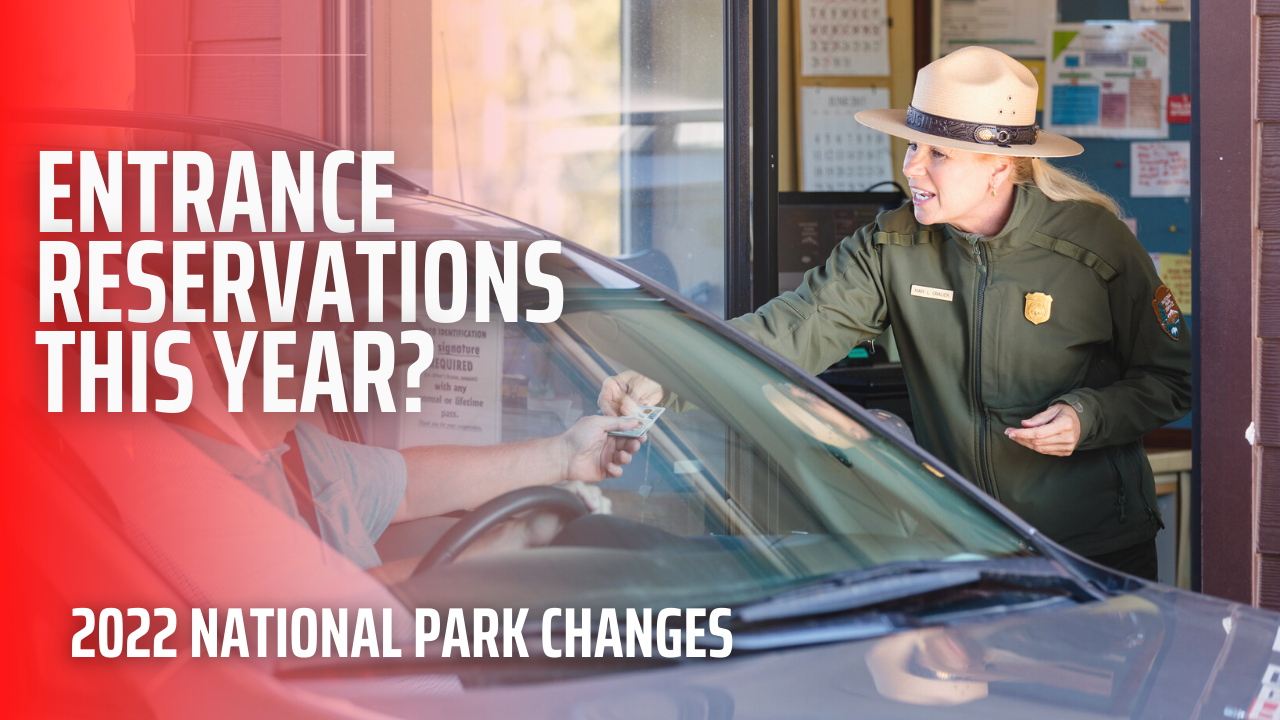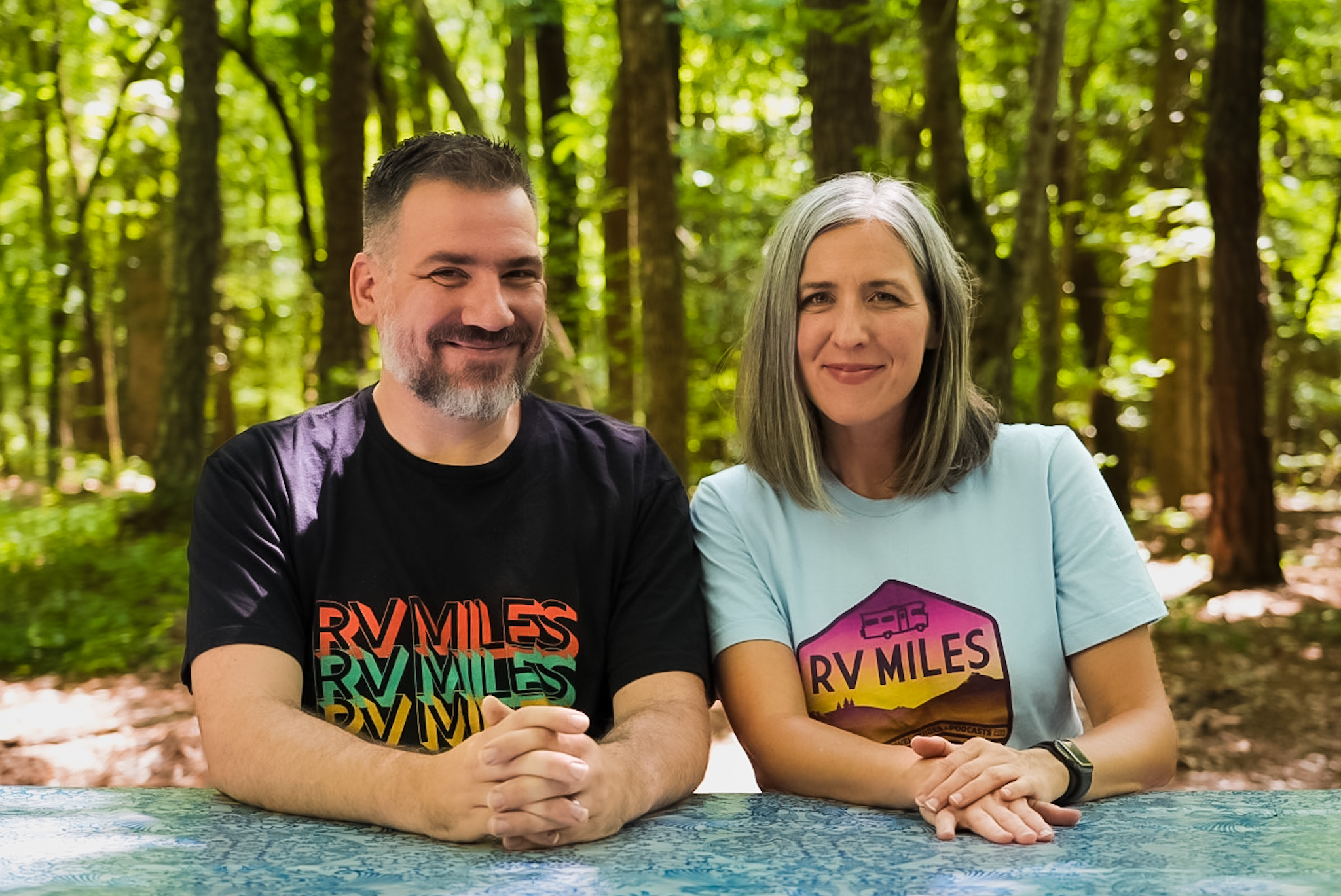America’s 400+ National Park Service sites have seen a surge in visitation during the pandemic, and it’s expected that 2022 will be no different. Across the country, you may run into reservation systems, closures, increased fees, and other changes at National Parks.
Continued COVID-19 Related Precautions
Masks continue to be required indoors in all federal buildings, which includes National Park facilities. Visitors to National Parks, regardless of vaccination status, are required to wear a mask indoors and in crowded outdoor spaces. Masks are also required for everyone on all forms of public and commercial transportation like tour buses and shuttles.
Most visitor centers and indoor historic tours remain closed, so you won’t be able to do things like tour the USS Arizona Memorial or the Harry S. Truman home until COVID restrictions lift. In some parks, tours are still available, but are limited to a small number of people.
Restroom facilities are generally open, and in many places, rangers have set up outdoor visitor centers in order to provide information and permits. Most concessionaire-ran facilities are open, like gift shops, lodges and restaurants.
Reserved Entry
Reserved entry was implemented in several parks across the country during the surge in visitation in 2020 and 2021, and you can expect that trend to continue into 2022.
At Glacier National Park, tickets will again be required to enter the Going-to-the-Sun Road, but now a ticket per vehicle will also be required to visit the North Fork area of the park.
Going-to-the-Sun Road and North Fork are two separate tickets and will become available by early March. The park does not charge for them, but Recreation.gov charges a $2 nonrefundable service fee. Going-to-the-Sun Road tickets will now be good for three days instead of seven, and North Fork tickets will be good for one day.
At Rocky Mountain National Park, entry reservations are no longer required, but it’s expected that they will return this summer, along with an increase in entry fees.
At Yosemite, reservations are no longer required and aren’t quite as likely to return. They were more of a public health precaution than crowd control.
Beginning in April, Arches National Park will be operating a test-run of a reservation system. Timed entry tickets will be required from 6 a.m. to 5 p.m. daily and will allow visitors to enter the park during a one-hour window. Tickets will be released a month at a time beginning in March.
Zion National Park is avoiding a reserved entry system again for 2022, and it’s not likely that you will need shuttle tickets again to access the Zion canyon, but the popular and somewhat dangerous Angels Landing hike will now require an advance permit and reservation beginning in April. If you plan to hike Angel’s Landing between April 1 and May 31, you neet to apply for a permit between January 3 and January 20, and on a monthly rolling basis thereafter.
Advance reservations continue to be required to enter the cave at Carlsbad Caverns — you will not be able to pick up tickets day-of for entry to the cave either down the elevator or through the natural entrance.
Campgrounds
The National Park Service is the largest operator of campgrounds in the country, and changes are coming to many of them, primarily more required reservations and fewer first-come, first-served campsites.
At Yellowstone, the much-anticipated re-opening of Fishing Bridge — the only campground in the park with RV hookups — is expected to happen May 27th.
The campground has been closed for renovations since the end of the 2019 season, and will now have new, larger sites, a larger parking lot, new dump station and recycling area, and an expanded registration building with more showers and laundry facilities. The Upper Loop will have 172 sites for larger RVs, ranging from 40-feet to 95-feet in length. Fishing Bridge reservations have only just opened, so snag them up now before they’re gone.
Most of Yellowstone’s 13 other campgrounds are now reservation-only. You will only be able to get first-come, first-served sites at 4 campgrounds — Indian Creek, Pebble Creek, Tower Fall, and Lewis Lake.
At Grand Teton, all campgrounds are now reservation-only, available for booking on a six-month rolling basis. While a limited number of sites will be held back for reservation on a 14-day rolling basis. Park campgrounds will no longer be reservable through local campground call centers, you’ll only be able to reserve on recreation.gov.
At Glacier, the Apgar and Sprague Creek campgrounds will now require advance reservations in addition to Fish Creek and St. Mary campgrounds. Rising Sun and Avalanche campgrounds will remain first come, first served.
Dozens of other campgrounds across the park system are switching to reservation-only, so make sure to check in advance if you’re going back to an old favorite site without booking first.
If you’re heading to Fort Pickens campground, a favorite out on the Gulf Islands National Seashore in the Florida Panhandle, you’ll no longer be able to head out there with a large motorhome or fifth wheel. The roadways have been limited to a maximum vehicle height of 12’.
Constuction
Nationwide you may find lots of construction at National Park Service visitor centers, on roadways, and in campgrounds due to a large infusion of funding from the Great American Outdoors Act that passed last year and some other bills.
For instance, at Saratoga National Historical Park a $6.6 million project will begin in 2022 rehabbing the park’s popular, self-guided battlefield Tour Road. The most heavily traveled road in Delaware Water Gap National Recreation Area – a seven-mile section of US Route 209 — will be rebuilt beginning in the spring of 2022. $14 million will be spent on replacing the HVAC systems in most of the buildings at Independence National Historical Park.
Fees and Fee Free Days:
Sporadically across the park system, you’ll find increases in some entrance, camping, and amenity fees. Walnut Canyon National Monument will transition from an individual entry fee of $15 per person to a $25 dollar per vehicle fee, making it more in line with other parks. Pictured Rocks National Lakeshore will be charging entrance fees for the first time starting March 1, 2022.
You’ll also see fewer cash pay boxes across the park system, and more credit card machines. In many places, cash is no longer accepted for permits, camping, or entrance.
Each year the National Park Service offers fee-free days, which in 2022 will be five days spread out throughout the year.
We generally recommend people with annual passes avoid these days, as they can be very busy in popular parks. Annual passes to all public lands are $80 per year for a carload of 4 adults. Lifetime passes are $80 for seniors and free passes are offered 4th graders, veterans and those living with permanent disabilities. Check out our video covering all the National Park passes:







